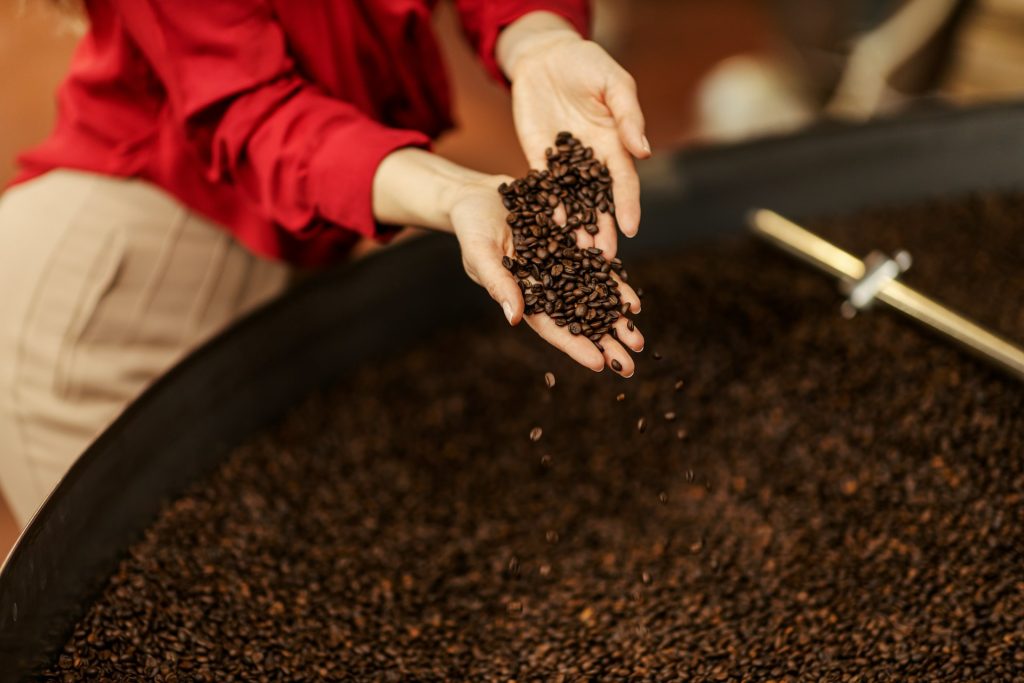Table of Contents
If you think your morning cup of coffee is just a simple pleasure, think again. The way we brew our daily cup is having a profound impact on the planet, farmers, and the future of the coffee industry. Sustainable coffee is no longer a niche trend—it’s becoming the backbone of a growing movement. So, why is everyone talking about it, and why should you care?
What is Sustainable Coffee?
In simple terms, sustainable coffee refers to coffee that is produced using methods that are kind to the planet and people. It’s about ensuring that coffee farming has minimal environmental impact, supports fair wages for farmers, and can continue to thrive for generations. Unlike traditional coffee farming, which can lead to deforestation, soil depletion, and harmful pesticide use, sustainable coffee farming focuses on practices that protect the environment, promote biodiversity, and support local communities.
Why Sustainability Matters in Coffee Production

The environmental impact of conventional coffee production is staggering. Coffee is grown in some of the most biodiverse regions of the world, often in areas where forests are being cleared to make way for new coffee plantations. This deforestation not only threatens wildlife but also contributes to climate change by releasing carbon dioxide into the atmosphere.
Sustainable coffee farming addresses these issues by promoting methods like agroforestry, where coffee plants are grown alongside trees and other plants. This practice helps preserve natural ecosystems, provides shade to the coffee plants, and enriches the soil. Additionally, sustainable farms often use organic farming techniques, which reduce the need for harmful pesticides and fertilizers, further protecting both the environment and the health of the local communities.
But it’s not just about saving the environment. By protecting the land and promoting sustainable farming practices, the future supply of coffee is secured, even as climate change impacts coffee-growing regions. As unpredictable weather patterns and shifting temperatures threaten traditional coffee farming areas, sustainable practices offer a way to adapt and safeguard future harvests.
The Economic Benefits of Sustainable Coffee
It’s not just the environment that benefits from sustainable coffee—farmers do, too. Conventional coffee farming often relies on low wages and poor working conditions, especially for small-scale farmers in developing countries. This leaves coffee producers vulnerable to exploitation, low profits, and poor living standards.
Sustainable coffee certifications like Fair Trade, Rainforest Alliance, and Organic focus on providing farmers with fair wages, access to better working conditions, and support for their communities. These certifications ensure that farmers are paid fairly for their crops, have access to education and healthcare, and are treated with respect.
Sustainable farming also provides long-term benefits. By focusing on soil health, water conservation, and biodiversity, sustainable farming creates more resilient farms that can weather the effects of climate change. This leads to a more stable income for farmers and less vulnerability to market fluctuations.
For consumers, choosing sustainably produced coffee means supporting farmers and communities that rely on coffee for their livelihoods. It’s a simple way to make a positive impact on the world while enjoying your daily cup.
Consumer Demand: The Driving Force
The demand for sustainable coffee is no longer just a passing trend—it’s a full-fledged movement. Consumers today are more informed than ever about the products they buy, and they want to know that their coffee is ethically sourced. Whether it’s a cup from their favorite café or a bag from the grocery store, people are increasingly looking for coffee that aligns with their values.
Millennials and Gen Z, in particular, have been the driving force behind this shift. Both generations are passionate about sustainability, and their buying power is making a real impact. According to recent studies, younger consumers are more likely to choose products that are certified organic, Fair Trade, or Rainforest Alliance, and that trend is only growing.
As consumer demand for ethical products rises, more coffee companies are responding. From big-name chains to local roasters, businesses are becoming more transparent about where their coffee comes from, how it’s produced, and how it impacts the environment. This shift is helping make sustainable coffee more accessible, meaning that even the busiest coffee lovers can enjoy their brew with a clear conscience.
Innovations in Sustainable Coffee

Sustainability isn’t just about traditional practices; it’s also about innovation. New technologies and methods are making coffee production more eco-friendly, and companies are jumping on board to make the industry more sustainable.
One major innovation is in coffee packaging. Single-use coffee pods, once a mainstay of the coffee industry, have come under fire for their environmental impact. Many brands are now offering eco-friendly alternatives, such as recyclable or biodegradable pods, and some are even moving to completely plastic-free packaging.
On the farm side, new water conservation techniques and low-impact farming tools are helping reduce the environmental footprint of coffee production. The use of drip irrigation systems, for example, helps farmers use water more efficiently, while composting organic waste reduces the need for chemical fertilizers.
Additionally, more coffee companies are committing to carbon-neutral production. Some are offsetting their carbon emissions by planting trees, investing in renewable energy, or funding reforestation projects. These innovations are making it easier for consumers to enjoy their coffee guilt-free, knowing that their purchase is supporting not just fair wages for farmers but also a healthier planet.
How You Can Support Sustainable Coffee
Supporting sustainable coffee doesn’t require a complete overhaul of your morning routine—small changes can make a big difference. Here’s how you can get involved:
- Choose Certified Brands: Look for coffee that carries certifications like Fair Trade, Rainforest Alliance, or Organic. These certifications ensure that your coffee is grown and produced ethically, with respect for both the environment and the people involved in its production.
- Support Local Roasters: Many local roasters work directly with farmers to ensure fair pricing and sustainable practices. By buying from them, you help support small-scale farmers and sustainable coffee production.
- Minimize Waste: If you use single-use coffee pods, make the switch to reusable options. Many brands now offer stainless steel or other reusable pods, which can save you money and reduce plastic waste.
- Educate Yourself and Others: The more you know about sustainable coffee, the better choices you can make. Share your knowledge with others and encourage your friends and family to choose sustainable coffee options.
The Future of Coffee: A Sustainable Shift

The future of coffee is undeniably shifting toward sustainability, and it’s an exciting time to be a part of that change. By choosing sustainable coffee, you’re not just enjoying a delicious cup—you’re contributing to a better future for farmers, communities, and the planet. So, the next time you sip your coffee, remember that your choices matter, and together, we can help shape a more sustainable coffee industry for generations to come.

I’m Audrey, a dedicated mother of teenagers with an insatiable love for coffee. On BeanBrewLove.com, I intertwine my need for caffeine with reflections on life. Whether expressing a nostalgic sentiment or injecting a hint of sarcasm, my blog is a reservoir of coffee culture, brewing techniques, and global coffee reviews.




